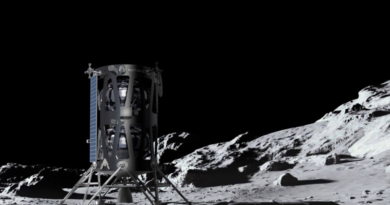Nvidia taps China talent for autonomous driving endeavors

Nvidia has long been involved in the development of autonomous vehicle technologies, providing the industry with graphic processing units that can perform millions of calculations simultaneously. Now the semiconductor powerhouse is stepping up its AV game by seeking a talent boost in China.
The firm is recruiting two dozen roles for an autonomous driving team spread across Beijing, Shanghai and Shenzhen, according to a post on its official WeChat account on Tuesday. The unit, consisting of positions in software, end-to-end platform, system integration, mapping and product, is led by Xinzhou Wu, who is recognized for bringing smart driving features to mass-produced vehicles in China over the last few years.
In August, Nvidia hired Wu, the former head of autonomous vehicles at Xpeng, a Chinese electric vehicle upstart often compared to Tesla for its commitment to smart driving. According to Wu’s LinkedIn profile, he joined as Nvidia’s head of automotive and serves on the executive staff team reporting directly to Jensen Huang, founder and CEO of the chip giant.
Nvidia enjoys a critical position in the self-driving space thanks to its powerful graphics cards. In September last year, the company unveiled its latest generation of automotive-grade chip known as Thor, which has a 2,000 teraflops of performance.
It’s unsurprising that Nvidia has designated China as an important hub for its AV endeavors. Cut-throat competition in the country’s auto industry has driven many electric carmakers to invest in autonomous driving, producing a pool of talent experienced in bringing the technology from R&D to mass production.
Indeed, Wu, who serves as the head of AV at Nvidia and personally leads the China AV team, alludes to the country’s critical role in potentially fueling the firm’s commercial success in smart driving. According to his statement included in the job posting:
“Let’s hope that the Chinese autonomous driving team can become a core force in driving the commercialization of Nvdia’s autonomous driving products, tapping the country’s talent and experience to create autonomous driving products for the global market.”
Nvidia’s own relationship with China is a delicate one. Under U.S. export control, the chip giant is currently barred from exporting its most powerful AI GPUs to China, one of its biggest markets, though its automotive products are not affected at the moment.
Led by Wu, Nvidia’s AV team carries out wide-ranging functions to “design, create, and deploy” AI systems for automation and autonomous vehicles, according to the post. Specifically, the unit performs AI training and testing tasks as well as real-time data processing in vehicles, which can include robotaxis, commercial fleets and passenger cars.
Wu’s job hopping has had the blessing of his former boss. In a Weibo post announcing Wu’s departure, XPeng’s founder and CEO He Xiaopeng expressed pride in his former employee for attaining a “top-level management role” at a “globally renowned company,” which turned out to be Nvidia.
On social media, He and Wu have each hinted at a tie-up between XPeng and Nvidia in the area of semiconductors. In a photo posted by Wu the day before he started at Nvidia, he was flanked by Huang and He, suggesting a close partnership between the two companies.
“Tomorrow is my first day at Nvidia, and I appreciate Xiaopeng for personally escorting me here. According to Old Huang [Jensen Huang], I will still be working for Xiaopeng in the future, just without him having to pay my salary,” Wu wrote in the post.
TechCrunch has reached out to Nvidia for comment on the recruitment announcement.




